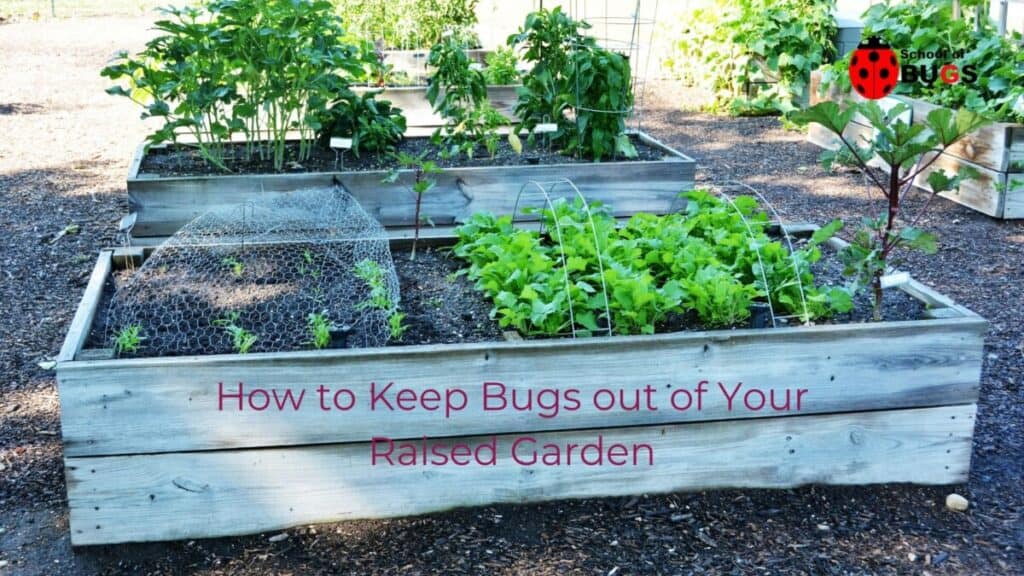
They’re destructive, discouraging, and difficult to get rid of – that’s right, we’re referring to the known enemy of gardeners everywhere: bugs.
Not all bugs, of course, just those that pose a threat to your vegetables. And depending on the pest, some methods of keeping them away will work better than others.
In this article, we will outline the best methods for keeping a variety of pests out of your garden, and which methods work best for each insect. These methods are as follows:
- Attract birds to your garden
- Garden lime
- Diatomaceous earth
- Spray with spices
- DIY bug spray
- Grow companion plants
- Plant herbs alongside vegetables
- Neem oil
- Row covers
- Preventative measures
Read on to learn more about the best ways to keep pests out of your raised garden.
1. Attract birds and other natural predators to your garden
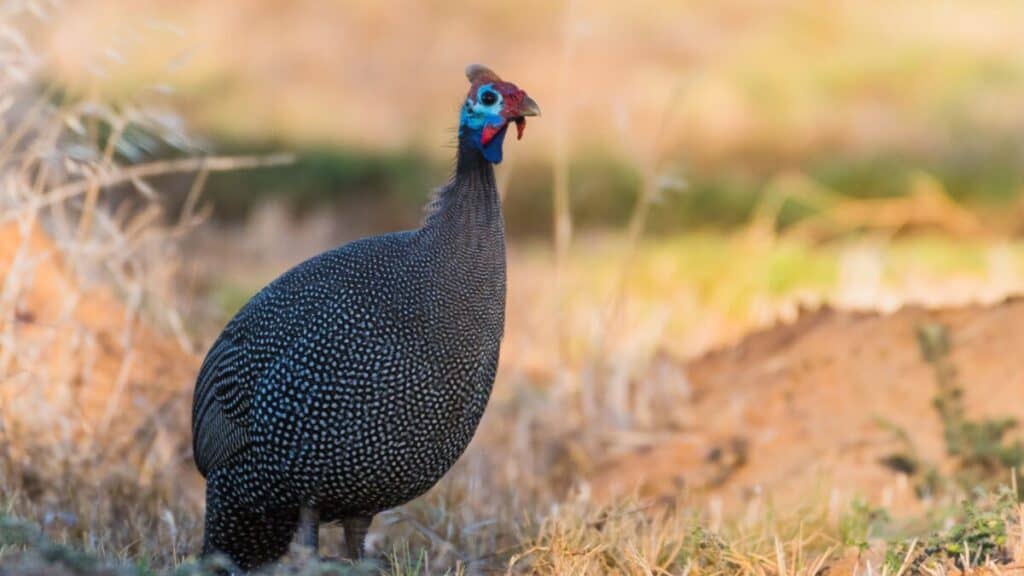
Birds are a wonderful and natural way to keep bugs and other pests out of your garden, especially larger ones such as slugs, snails, and hornworms.
While chickens are a good idea to repel slugs and snails, they have been known to scratch at the soil and peck at vegetable crops.
Guinea fowl are a recommended alternative, as they will generally keep away from the vegetables and go after smaller pests such as ticks and beetles.
One great advantage to having birds in your garden is that they don’t usually attack ladybugs, which are another beneficial predator that preys on aphids.
How do I attract birds to my garden?
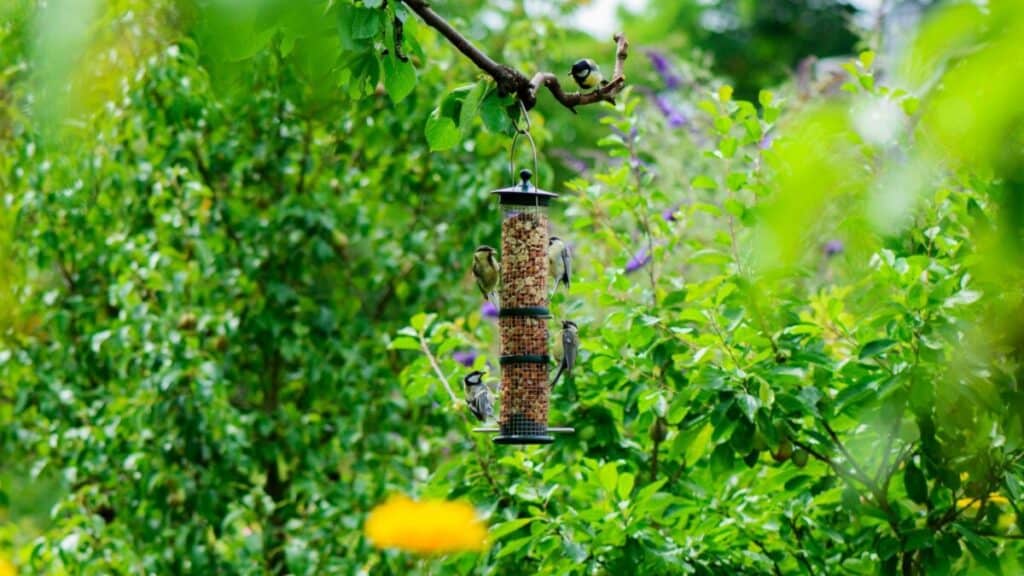
The best method of attracting wild birds to your garden is to keep a birdbath near or in your raised beds, as well as a birdfeeder. Keep the birdbath filled with fresh water and the birdfeeder with seeds.
One tip into solidifying your backyard garden into a bird haven is to install the birdbath and birdfeeders in autumn, so when summertime comes, the birds will already be frequent visitors to your garden and the birds will nip your pest problem in the bud before you have an infestation on your hands.
2. Garden lime
Garden lime is a great choice for adding to your soil to repel Japanese beetles and other destructive insects.
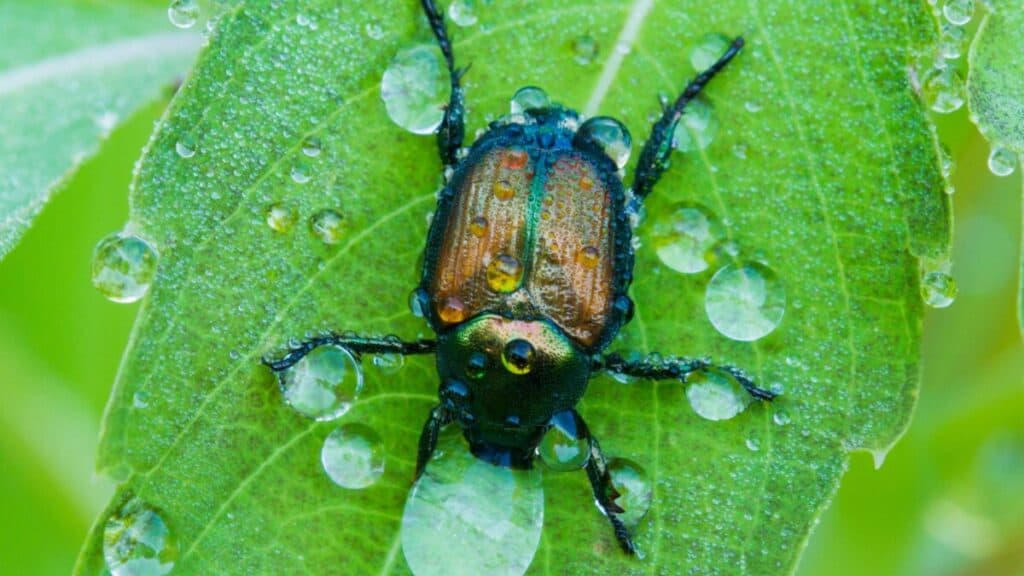
It also keeps away raccoons, snakes, and skunks. Sprinkle a generous amount to the soil along your garden’s perimeter and it should do the job.
Garden lime can be found in most stores that sell gardening equipment. It is also known as “dolomitic lime.” It is basically limestone ground finely so it can be easily applied to the soil.
3. Diatomaceous earth
Diatomaceous earth (DE) is microscopically devastating to crawling pests without posing harm to your vegetables.
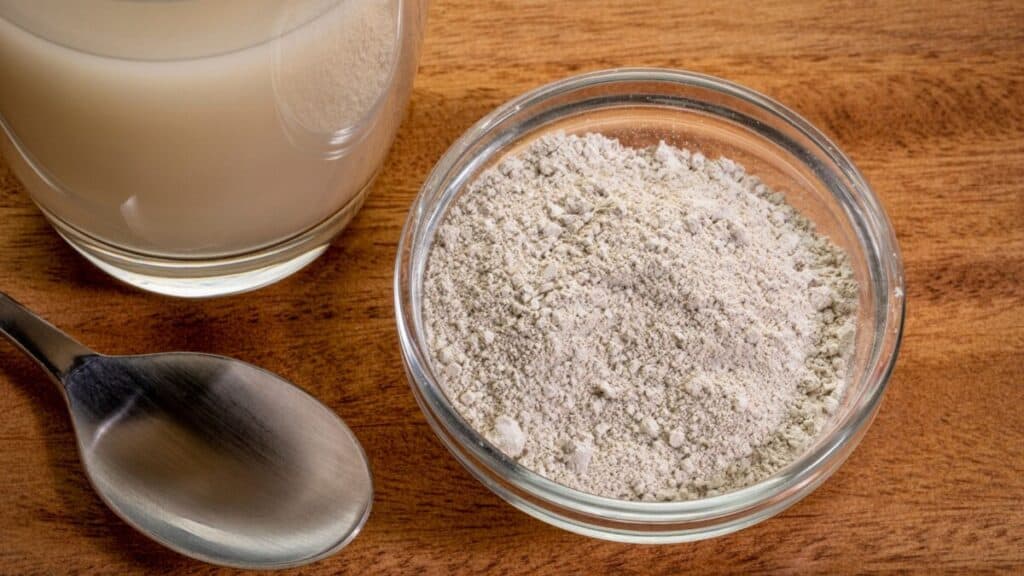
Place DE directly on insect eggs and around the stems of your plants to protect them from insect damage.
4. Spray with spices
Many garden pests, including cabbage loopers, grasshoppers, and aphids are highly sensitive to spices. To repel cabbage loopers, add 3 teaspoons of powdered cayenne pepper to 1 quart of water.
Place the mixture in a spray bottle and liberally spray on your cabbage, kale, and Brussels sprouts to keep them away.
For eradicating aphids and grasshoppers, mix 3 hot peppers, 1 mild green pepper, and 1 small onion to 1 quart of water. Add to spray bottle and generously apply to your plants.
5. DIY bug spray
By adding 2 teaspoons of liquid dish soap to water, you can make an all-purpose bug repellent that won’t harm your plants – only the pests that devour their leaves.
For slugs and snails, add cold black coffee to a spray bottle and apply to the leaves of your crops. Coffee will also kill snails and slugs on contact, so keep this in mind if you catch these slimy pests devouring your veggies.

6. Companion plants
Companion plants are exactly that – plants, usually floral ones instead of edibles – grown alongside crops susceptible to pests.
Companion plants are species that naturally repel pests due to their taste, texture, sap, etc. Some – like nasturtium – attract natural predators to your garden that prey on garden pests.
- Bee balm
- Bee balm, as its name suggests, naturally attracts pollinators such as bees, butterflies, and hummingbirds to your garden. Also known as lemon balm, this ornamental plant repels pests.
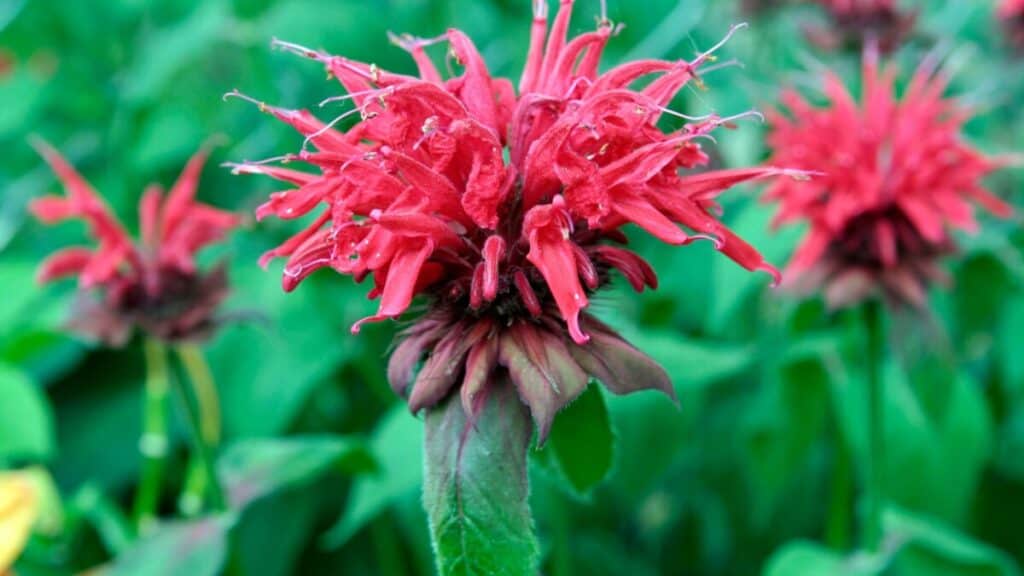
- Nasturtiums
- These flowers add nutrients to the soil and attract aphid-eating hover flies. The colorful blooms are also edible and have a unique peppery flavor that goes well in salads with other greens. Nasturtium seeds, when soaked in vinegar, are a great substitute for capers in pasta dishes.
- Lavender
- This fragrant herb with its tall, graceful stalks deters mosquitos, fleas, flies, and moths.
- Thyme
- This plant helps keep away mosquitoes – an added benefit if you like to spend time in the garden during the evening hours!
- Marigolds
- These bright, cheerful blooms repel pests such as mosquitoes and cabbage worms. They also attract ladybugs, which are a natural predator to aphids.
- Chrysanthemums
- Chrysanthemums – colloquially known as simply “mums” – have the unique advantage of repelling both indoor and outdoor pests. Planted indoors, they will keep away lice, fleas, roaches, bedbugs, and ants. If planted in your raised gardens, they will repel ticks, Japanese beetles, spider mites, and more.
- Mums come in a whole range of beautiful colors and continue blooming into the autumn, making them an attractive addition to any garden.
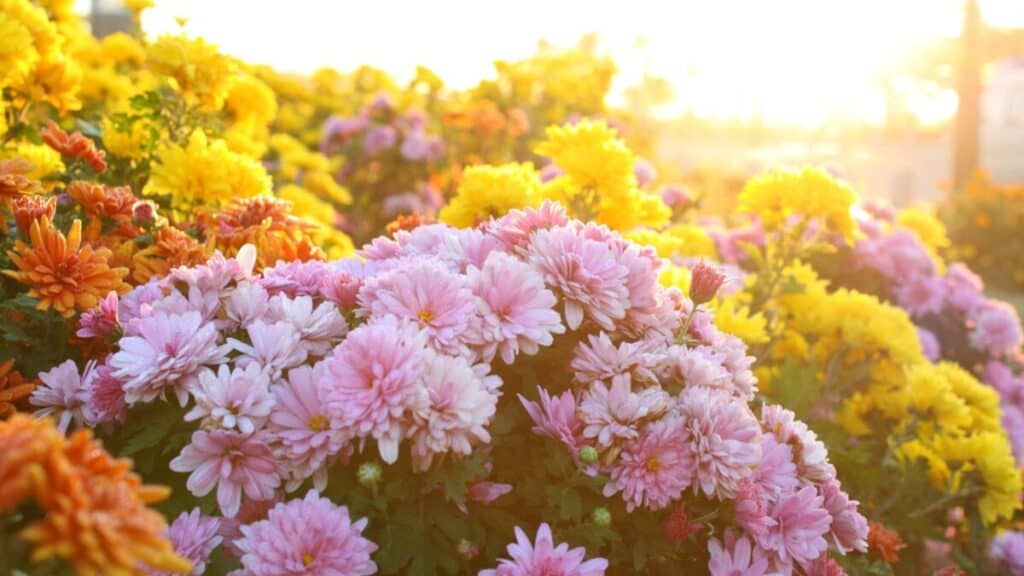
- Tansy
- This flower, with its round, bright yellow blooms, deters ants and aphids. Since ants frequently carry aphids to plants, preventing ants will prevent their destructive hangers-on from devouring your crops.
- Petunias
- These pretty flowers help keep away Colorado potato beetles, especially when planted beside beans and potato plants.
7. Plant herbs alongside vegetables
- Mint
- Since mint can be invasive when planted in a bed, make sure to plant it in containers.
- Basil
- This aromatic herb repels many common garden pests and is particularly helpful when planted alongside tomato plants.
- Rosemary
- This fragrant herb, with its dainty purple flowers, repels pests such as various beetles, cabbage moths, and carrot flies.
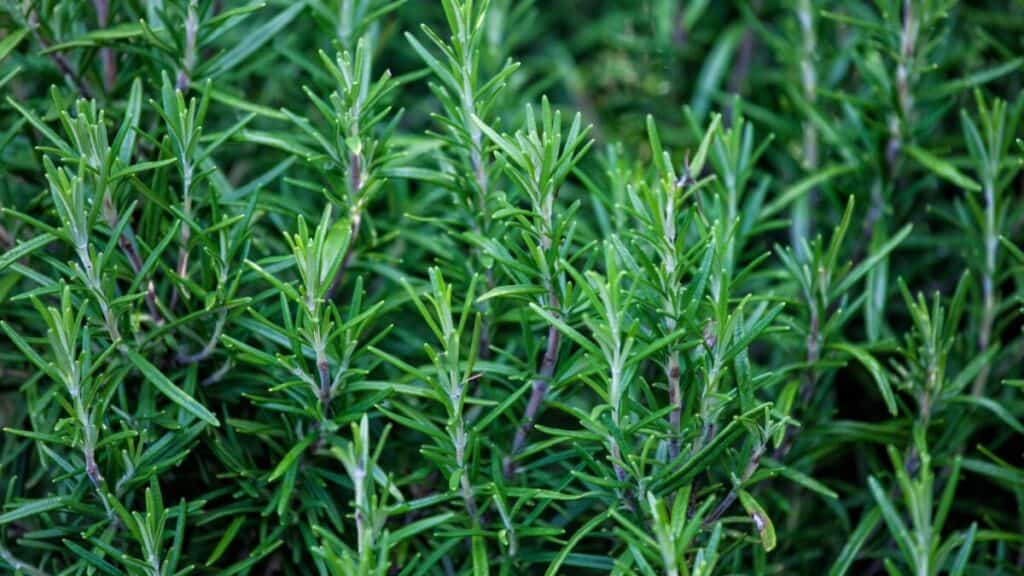
- Onion
- Onions are one of the most beneficial herbs to plant alongside your crops as far as preventing pests go. They repel a wide variety of garden pests.
- Chives
- These low-maintenance companion plants are easy to grow. Since they’re a perennial, there’s no need to replant them every year. Their leaves also re-grow after cutting them off for use.
- Radishes
- Radishes repel many beetles, including but not limited to Japanese beetles, June beetles, and cucumber beetles.
- Garlic
- Garlic is easy to grow, as an entire head will grow from one clove. Regular garlic found at the grocery store won’t sprout if you plant it, as it’s treated with chemicals to prevent it growing, so opt for organic garlic if you plan on planting it.
- Garlic is especially beneficial when planted alongside raspberry and blackberry bushes, as these crops are particularly susceptible to damage from various beetles.
- Dill
- This flavorful herb attracts insects that are squash bugs’ natural predators.
- Catnip
- This herb deters cucumber beetles.
8. Neem oil

This natural pest control product is typically sold in a spray bottle so you can spray it liberally over your vegetables.
While it may not work for large infestations, as the insects need to come in contact with the oil to die, it will certainly cut squash bug populations and slow them down.
9. Row covers
Row covers are a great way to keep squash bugs and other pests off your plants. You can use either hooped row covers, or floating row covers.
Covering a raised bed is also easy to do and another effective strategy in keeping bugs from your garden.
Preventative Measures
Clean garden in the fall
After the growing season is done, it can be tempting to leave the dried vines and leaves for the following year. However, keeping the organic debris gives pests a secure place to overwinter.
Squash beetles are notorious for doing this, and this pest can wreak havoc on your zucchini, squash, cucumbers, watermelon, and other similar crops.
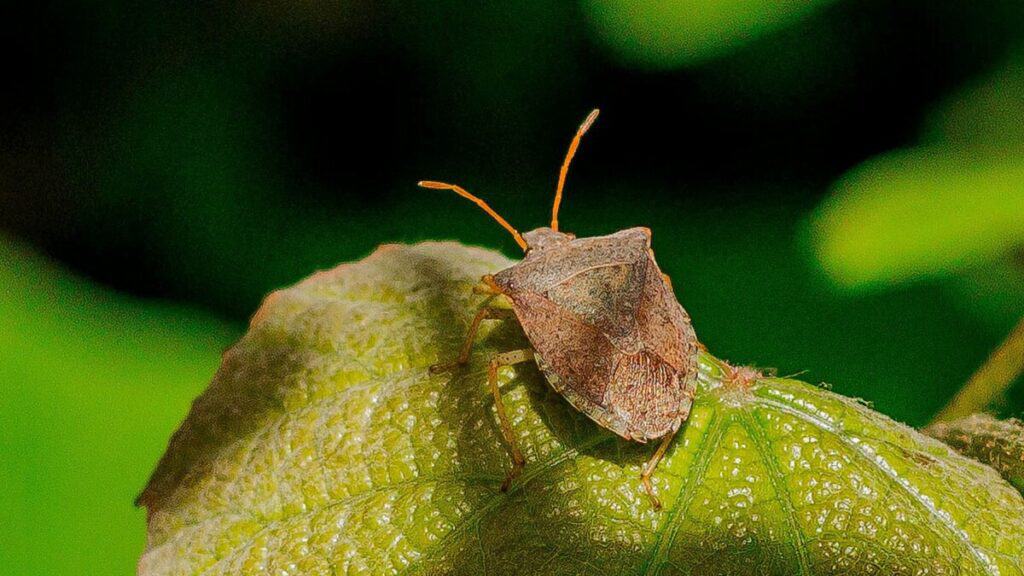
If you put in the extra effort to clean up dead vines and leaves in the fall, your vegetables will thank you come growing season.
Rotate crops
Crop rotation not only deters squash bugs, but other common garden pests, as well. Crop rotation is the practice of not planting the same crops in the same areas in back-to-back years.
For example, if you grew squash in one area of the garden last year, change it up by planting tomatoes in the squash’s old spot and the squash where the tomatoes or another vegetable grew the previous year.
Crop rotation is beneficial in guarding your garden against pests because it doesn’t give the insects and diseases time to settle into one spot. It is also beneficial by preserving soil health.
Delay planting vegetables until the fall
Since squash bugs and other pests become active in early spring, delay planting your squash outside in your garden beds until the early summer instead of after your last frost date. This denies many pests their food source.
You could even begin your seedlings indoors around your last frost date and wait until early to mid-June to plant the seedlings in the soil.
Alright, that’s it for this article, here are a few hand-selected articles that you might also find interesting reads:
How To Keep Bugs out of Your GreenhouseHow to Keep Bugs Out Without Door Screens
How to Keep Bugs Out of Your Compost Bin
Recent Posts
Tiny Black Bugs in Bathroom NO WINGS: What They Are and What to Do!
Finding tiny black bugs in your bathroom can be uncomfortable, to say the least. Especially if they are persistent, or they appear in very large numbers, which they often like to do. When it...
Tiny Black Bugs in Plant Soil - What Are They & What To Do About It
A short horror story: You get a new houseplant. You do your best to take care of it. You’ve ensured that it has the right soil, the right amount of sun, it gets enough water. And then one day, you...

